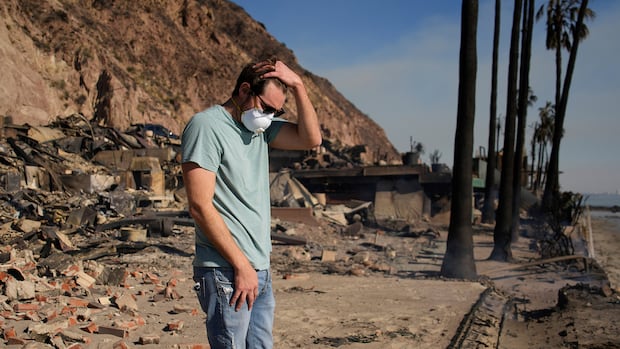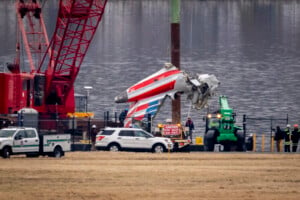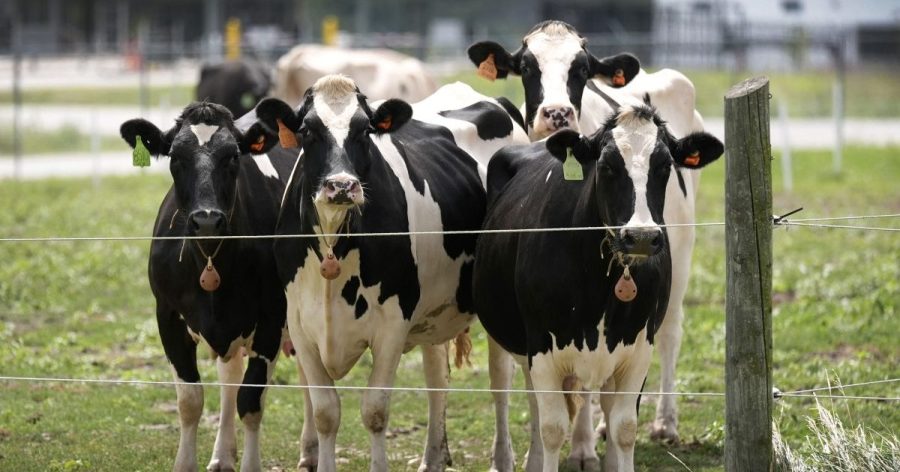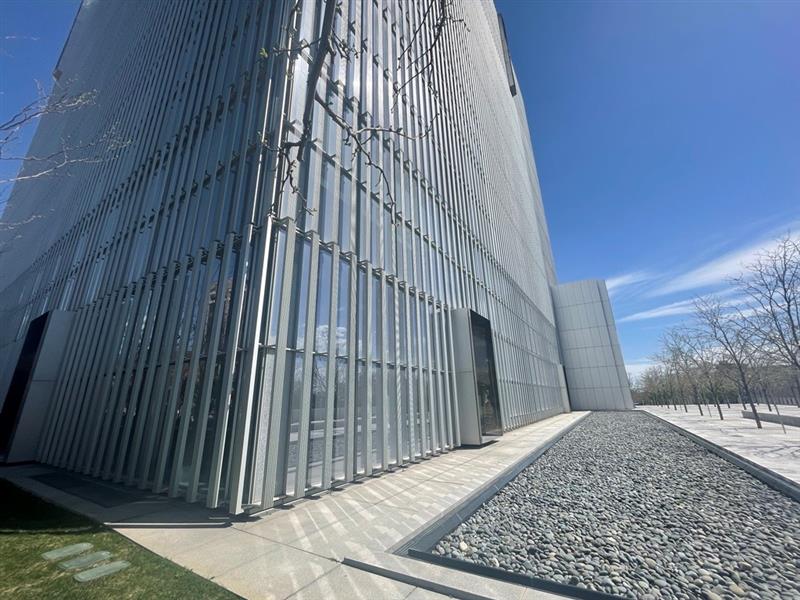California homebuilders say they have few options but to keep buying Canadian lumber, even if it’s hit with 25 per cent tariffs, as they rebuild thousands of homes destroyed by devastating wildfires in Los Angeles.
Dan Dunmoyer, president of the California Building Industry Association, said Wednesday that “there aren’t really alternatives” to Canadian lumber used for homebuilding in the state because about 80 per cent of Californian land is owned by the federal or state governments and can’t be logged.
Dunmoyer also said California lacks mills, environmental policies and supply chains that would allow a quick switch to local lumber production, and making those changes would likely take years.
“We are very dependent on Canadian lumber,” he said. “We like Canadian lumber. It’s super high-quality, properly harvested for the environment. It’s really quality material.
“I understand from a president or a prime minister’s perspective, it’s all about jobs. It’s all about making sure your people have an income and a lifestyle, the quality of life that’s enjoyable.… But to try to do this over a weekend and say, ‘Hey, we just want to put these big tariffs on any country without creating the economy within your own country,’ [it] just means higher prices, full stop, full period.”
More than a week into the wildfire crisis in Los Angeles, the frustration has grown for the tens of thousands of people under evacuation orders. Officials tell them it could be at least another week before they’ll be allowed to check on their homes.
U.S. President Donald Trump has threatened a 25 per cent tariff on most Canadian exports, which would boost softwood lumber levies to almost 40 per cent when existing duties of 14.4 per cent are taken into account.
Prime Minister Justin Trudeau and Trump said on Monday that the tariffs were on hold for 30 days.
The forestry sector in British Columbia and across Canada has described the proposed tariffs as unnecessary and unwarranted, given that the United States currently meets only about 70 per cent of its homebuilding lumber needs domestically, while Canadian lumber to fill the gap.
Trump said on Jan. 30 that the U.S. did not need foreign lumber and “we have all the trees you need.”
B.C. looks to Asian markets for growth
Kurt Niquidet of the B.C. Lumber Trade Council said Trump’s comments show a misunderstanding of the United State’s reliance on Canadian wood.
“There’s no way they can replace the imports from Canada,” he said in an interview with CBC News this week.
Kurt Niquidet, president of the B.C. Lumber Trade Council, says claims from U.S. President Donald Trump that the U.S. will be able to manufacture its own lumber to replace imports from Canada are false. He told BC Today host Michelle Eliot that the U.S. can only supply 70 per cent of its own lumber and would need to import the other 30 per cent from elsewhere.
Canadian lumber is already subject to significant barriers in reaching U.S. markets in the form of longstanding duties on softwood lumber, which were raised last August and are set to rise again this year.
The possibility of more tariffs on top of those fees have the industry once again looking to alternative trade markets in Asia. Currently, Niquidet said, roughly 70 per cent of his industry’s exports go to the United States.
B.C. forms new council
On Wednesday, the B.C. provincial government announced it had formed a new council consisting of industry, labour, U.S.-relations expertise and government voices to advance the province’s interests in the softwood lumber dispute.
The province says the new council, which first met on Jan. 30, will provide “recommendations on steps B.C. can take to eliminate the 14.4 [per cent] softwood lumber duties.”
“The U.S. has imposed unjustified softwood lumber duties on Canada for years, and we anticipate that they will likely double before the end of this year,” said B.C. Forests Minister Ravi Parmar in a statement.
“Bringing this team together, I am ready to throw the full weight of B.C. in the ring to fight these duties.”

In a later interview, Parmar said he had spoken to Dunmoyer’s group, and that the discussion showed many people in the U.S. understand tariffs would mean higher housing costs.
Parmar said he hoped to engage with lawmakers in California and North Carolina, a state hit hard by Hurricane Helene last fall, on the key role B.C. and Canadian lumber could play in rebuilding.
“It’s important for all Canadians and all British Columbians to know that … when President Trump talks about not needing our trees, he’s absolutely false,” he said.
On Wednesday, the province announced a panel to advocate for B.C.’s lumber industry, comprised of multiple stakeholders. Panel member Gavin McGarrigle, who is with the union Unifor, says the industry has faced major setbacks in the form of punishing U.S. tariffs.
Badly timed tariff threat
Dunmoyer said even if the new tariffs were imposed, switching from Canadian wood to U.S. timber wouldn’t be any cheaper for California homebuilders.
He said the recent devastating wildfires in Southern California have accelerated already high demand for new housing, and Trump’s tariff threat could not have come at a worse time for the industry.
“The demand for housing before the fires was off the charts,” Dunmoyer said. “We have projects where we have 35 homes available and 500 people in a waiting list, but that was before the fires.
“With the fires, it just increases that demand substantially. And the other thing, which is somewhat intuitive, is it increases the demand immediately, so it’s not like a ramp-up. You’ve got 15,000 displaced families who immediately need a home. And we don’t produce that many homes on a monthly basis in California to meet that demand alone.
“The timing is horrific. It’s horrible. It’s like, why would we add to the cost of housing when we desperately need more housing?”
January’s wildfires around Los Angeles destroyed or damaged as many as 19,000 homes and other structures.
#California #builders #alternatives #Canadian #timber #exist #tariff #threat















Leave a Reply